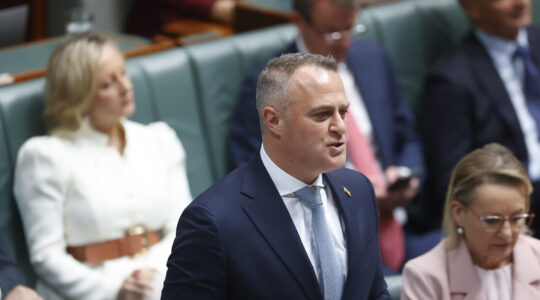Australians with leukaemia, early breast cancer and types of lupus and insomnia will now have access to new and expanded treatment options under the Pharmaceutical Benefits Scheme (PBS).
It is estimated the changes will benefit more than 25,000 patients who will now pay a maximum of $31.60 per prescription for treatments, some of which cost almost $190,000 per course.
The combination medicine daunorubicin with cytarabine (Vyxeos®) is now listed to treat two high-risk forms of newly diagnosed acute myeloid leukaemia (AML).
Federal Assistant Minister for Health Ged Kearney said around 5200 people in Australia were diagnosed with a form of leukaemia each year.
“The acute myeloid form of leukaemia starts when undeveloped white blood cells become cancerous. Without subsidy, patients might pay around $189,000 per course of treatment with daunorubicin with cytarabine,” she said.
Breast cancer drug Olaparib (Lynparza®) has also been listed and is a drug that without a subsidy patients could pay around $69,000 per course of treatment.
Minister Kearney said Olaparib had been expanded for use for patients with human epidermal growth factor receptor 2 negative (HER2-negative) high-risk early breast cancer with specific gene mutations.
“In Australia, breast cancer is the most common type of cancer among women, with more than two thirds of all patients diagnosed with HER2-negative.
“Around 300 patients are expected to benefit from this listing each year.”
She said it was estimated that more than 20,000 people in Australia were affected by lupus, with around 90 percent being women.
“Anifrolumab (Saphnelo®) has been listed for the first time to treat the severe systemic form of lupus erythematosus (SLE) in patients with high disease activity despite standard treatment.
“SLE is an autoimmune disease in which a person’s immune system attacks their own body, causing inflammation and organ damage.”
Minister Kearney said anifrolumab was a targeted therapy that blocked the action of specific proteins that were found at high levels in people with lupus.
“This can reduce inflammation and consequently reduce the symptoms of lupus.
“The listing is expected to benefit 1400 patients each year. Without subsidy, they might pay around $19,000 per year of treatment.”
Children and adolescents with insomnia associated with Smith-Magenis syndrome, a rare genetic developmental disorder that can cause sleep disturbances, will also benefit from the new listing of melatonin (Slenyto®) on the PBS.








